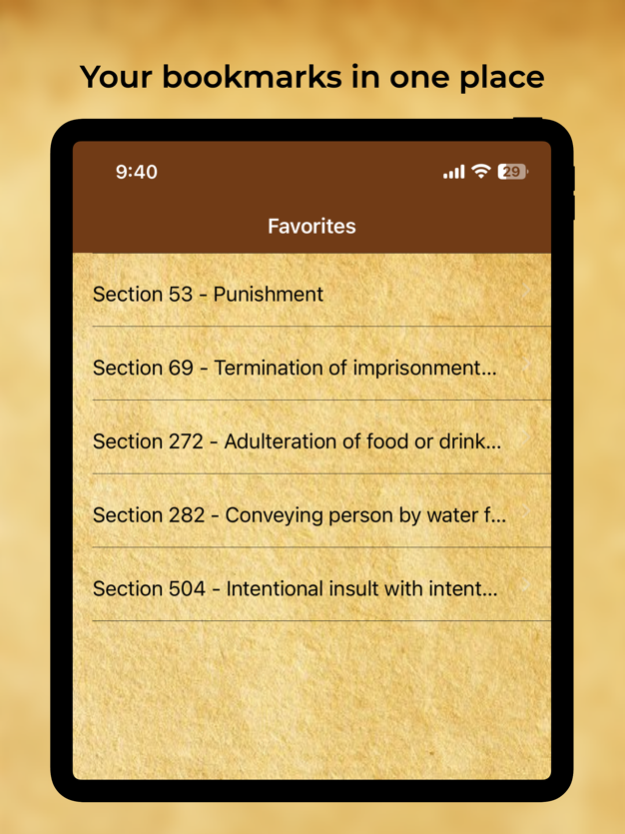IPC Indian Penal Code - 1860 1.10.0
Free Version
Publisher Description
The Indian Penal Code (IPC) is the main criminal code of India. It is a comprehensive code intended to cover all substantive aspects of criminal law. The code was drafted in 1860 on the recommendations of first law commission of India established in 1834 under the Charter Act of 1833 under the Chairmanship of Thomas Babington Macaulay. It came into force in British India during the early British Raj period in 1862. However, it did not apply automatically in the Princely states, which had their own courts and legal systems until the 1940s. The Code has since been amended several times and is now supplemented by other criminal provisions.
After the partition of the British Indian Empire, the Indian Penal Code was inherited by its successor states, the Dominion of India and the Dominion of Pakistan, where it continues independently as the Pakistan Penal Code. The Ranbir Penal Code (RPC) applicable in Jammu and Kashmir is also based on this Code. After the separation of Bangladesh from Pakistan, the code continued in force there. The Code was also adopted by the British colonial authorities in Colonial Burma, Ceylon (modern Sri Lanka), the Straits Settlements (now part of Malaysia), Singapore and Brunei, and remains the basis of the criminal codes in those countries.
The objective of this Act is to provide a general penal code for India. Though not an initial objective, the Act does not repeal the penal laws which were in force at the time of coming into force in India. This was so because the Code does not contain all the offenses and it was possible that some offenses might have still been left out of the Code, which were not intended to be exempted from penal consequences. Though this Code consolidates the whole of the law on the subject and is exhaustive on the matters in respect of which it declares the law, many more penal statutes governing various offenses have been created in addition to the code.
The Indian Penal Code of 1860, sub-divided into twenty-three chapters, comprises five hundred and eleven sections. The Code starts with an introduction, provides explanations and exceptions used in it, and covers a wide range of offenses.
Download now and enjoy reading it :-)
Feb 6, 2024
Version 1.10.0
Bug fixes and performance improvements
About IPC Indian Penal Code - 1860
IPC Indian Penal Code - 1860 is a free app for iOS published in the Kids list of apps, part of Education.
The company that develops IPC Indian Penal Code - 1860 is Mohit Agarwal. The latest version released by its developer is 1.10.0.
To install IPC Indian Penal Code - 1860 on your iOS device, just click the green Continue To App button above to start the installation process. The app is listed on our website since 2024-02-06 and was downloaded 2 times. We have already checked if the download link is safe, however for your own protection we recommend that you scan the downloaded app with your antivirus. Your antivirus may detect the IPC Indian Penal Code - 1860 as malware if the download link is broken.
How to install IPC Indian Penal Code - 1860 on your iOS device:
- Click on the Continue To App button on our website. This will redirect you to the App Store.
- Once the IPC Indian Penal Code - 1860 is shown in the iTunes listing of your iOS device, you can start its download and installation. Tap on the GET button to the right of the app to start downloading it.
- If you are not logged-in the iOS appstore app, you'll be prompted for your your Apple ID and/or password.
- After IPC Indian Penal Code - 1860 is downloaded, you'll see an INSTALL button to the right. Tap on it to start the actual installation of the iOS app.
- Once installation is finished you can tap on the OPEN button to start it. Its icon will also be added to your device home screen.



